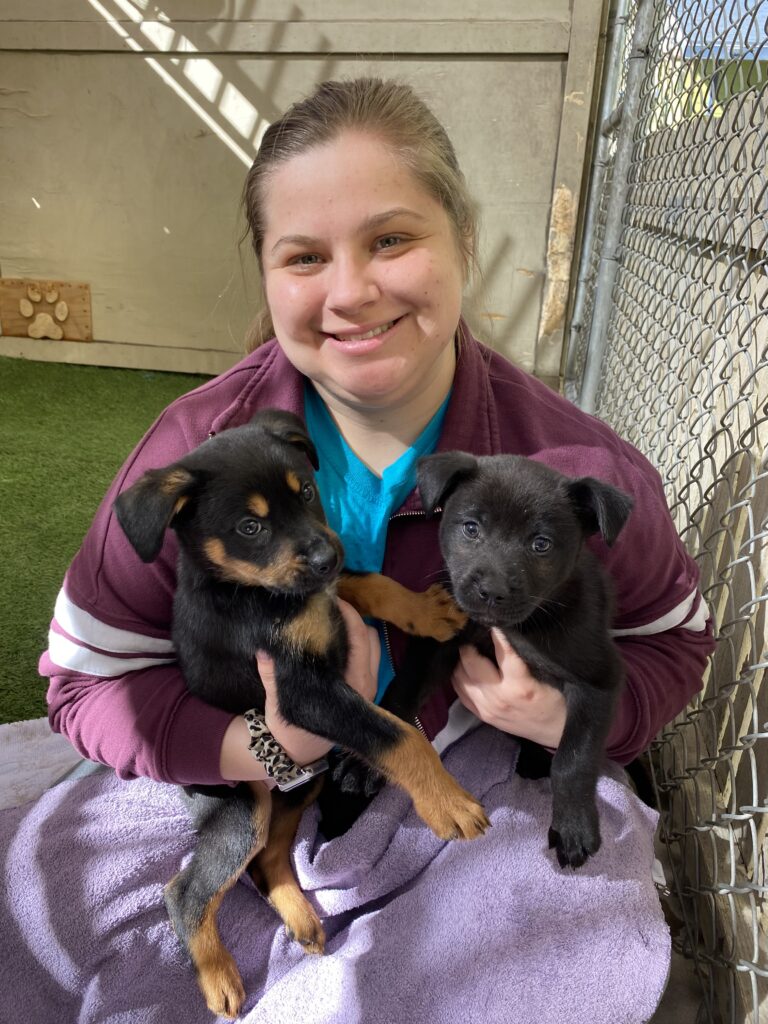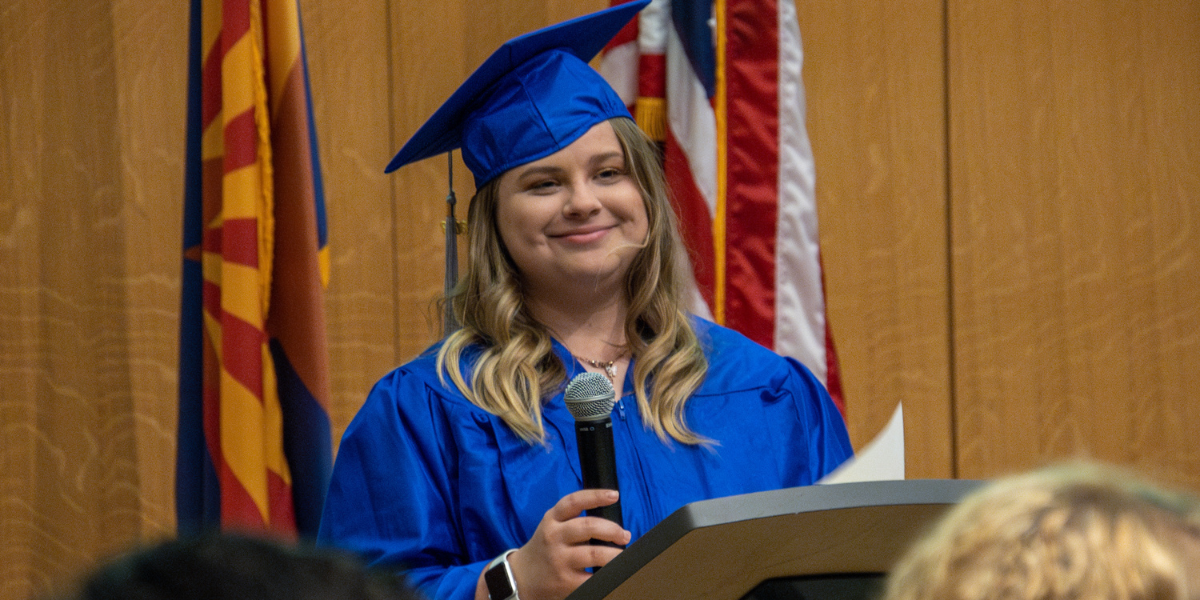In 2021, Ava Rosenberg, 22, was researching programs tailored to adults like herself with autism that would help her gain independence and arm her with the skills needed to find meaningful employment. During this search, she discovered the First Place Transition Academy, housed in the supportive environment of First Place®–Phoenix, which offers clinical services through SARRC.
“When I discovered the Transition Academy, I was excited about the potential to gain the tools for independence,” Rosenberg says. “I wanted to learn how to cook, manage my finances, and make friends.”
As a part of the Transition Academy program, residents live in shared apartments situated within First Place. Residents participate in Learn4Independence®, a two-year curriculum of 32 semester-length courses taught by SARRC clinicians at GateWay Community College. Topics covered include health, solutions, etiquette, transportation, independent living, organization, work, finances, safety, relationships, nutrition, identity, and community engagement and participation.
“The classroom-based lessons are applied in everyday activities through clinical sessions to support ongoing progress toward attaining each individual’s independence goals,” says Jillian Schneider, BCBA, SARRC’s associate clinical services manager for the Transition Academy.
Charting a course: Tailored support from SARRC
Rosenberg was able to take what she learned in the classroom and apply it to her daily life while living on her own at First Place.
Embarking on her path to independence, Rosenberg found comfort through the supportive community fostered at First Place. Surrounded by her peers and dedicated staff, she was able to learn the importance of self-advocacy and setting boundaries, skills she says she struggled with before finding the Transition Academy.
As with all SARRC programs, the approach to intervention is individualized for each client and family. SARRC’s team of therapists was intentional in involving Rosenberg in discussions about support and services that can help with tasks such as cooking, cleaning, time management, attending college courses, and developing additional social skills.
“Every person’s path through adulthood and independent living is unique: some feel prepared and confident for living on their own, attending college, or obtaining meaningful employment and some seek additional support,” Schneider says. “For those who need it, the Transition Academy provides an environment to practice independent living in a supportive community with embedded resources and clinical services.”
In addition, another significant milestone in Rosenberg’s journey was gaining the confidence to navigate public transportation on her own. “At first, I was nervous about navigating transportation on my own,” she recalls. “However, with practice and encouragement from my clinicians, I now feel comfortable taking the light rail alone. I even use Uber for trips the light rail can’t reach.”
Beyond mastering Phoenix’s public transportation, Rosenberg learned valuable work-related behaviors, like navigating workplace culture, advocating for herself, and developing time management and executive function skills. While working with her team of clinicians, she let them in on a secret: Before attending the Transition Academy, she loved spending her free time volunteering with the Arizona Animal Welfare League.
Upon learning about her love of dogs, SARRC’s team of clinicians was able to connect Rosenberg with the hiring manager at Dogtopia, a popular U.S. dog daycare franchise with a presence across the Valley. The hiring manager and a SARRC clinician helped her prepare for the interview by providing a list of potential questions they might ask her and offering resume tips.
“I’ve been a part of Dogtopia for over a year, and I work on the doggy daycare side,” Rosenberg says. “My main job is to keep an eye on the dogs, help with cleaning and make sure the dogs aren’t getting into any scuffles, and I also manage the playroom.”
Looking to the future
Following graduation from the Transition Academy, alumni take a variety of paths, according to Schneider. “After graduation, some choose to remain at First Place and continue receiving clinical services from SARRC. However, the majority transition to independent living, with about half opting for treatment to support this new chapter. Regardless, all students develop the skills they need to create their individual plan, advocate for their needs, and successfully execute their goals.”
In the summer of 2023, Rosenberg graduated from the Transition Academy, where she went from living in an apartment with three other roommates to now living in her own apartment at First Place. Her goal is to further her independence by moving out of First Place into an apartment in the Phoenix area.
“After completing the program, my goal is to fully experience independence without having to rely on others,” Rosenberg says. “I feel prepared to take on this next step.”
To achieve her goal, she’s diligently saving a portion of each paycheck from her job at Dogtopia. She credits the classes at GateWay for teaching her the skills to properly budget her paychecks, and she’s excited about the future. She has developed a passion for her work at Dogtopia and values the friendships she’s made there.
Rosenberg’s advice to others interested in gaining their independence through the First Place Transition Academy is: “Have patience, and just do what you need to be successful; all you can do is try your best.”


